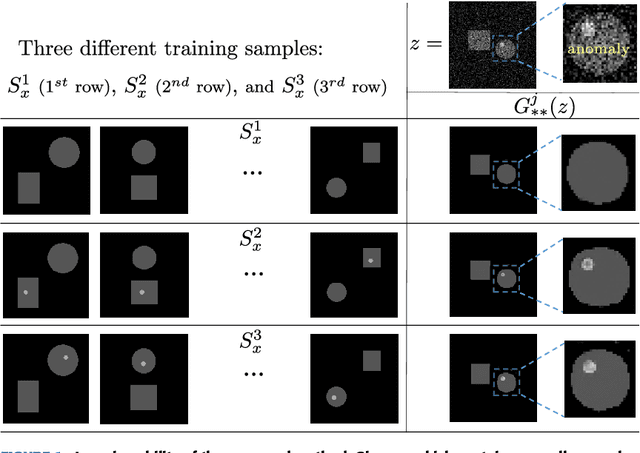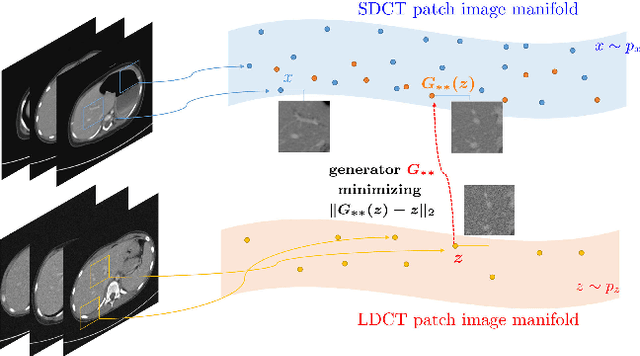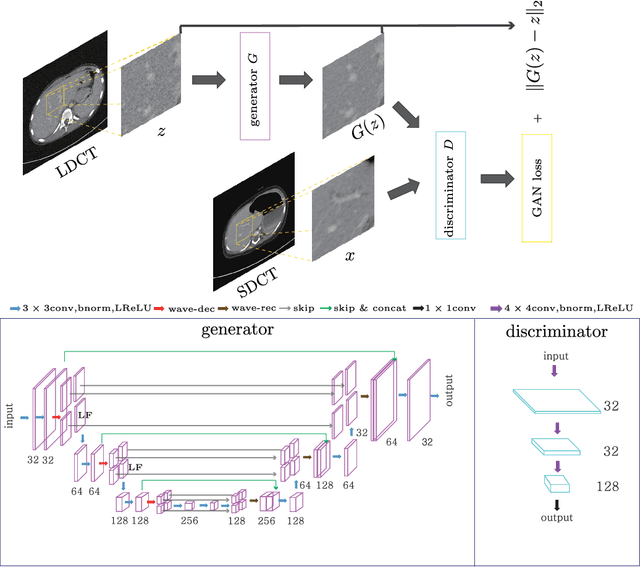Unpaired image denoising using a generative adversarial network in X-ray CT
Paper and Code
Mar 04, 2019



This paper proposes a deep learning-based denoising method for noisy low-dose computerized tomography (CT) images in the absence of paired training data. The proposed method uses a fidelity-embedded generative adversarial network (GAN) to learn a denoising function from unpaired training data of low-dose CT (LDCT) and standard-dose CT (SDCT) images, where the denoising function is the optimal generator in the GAN framework. Given an optimal discriminator in the GAN, the generator is optimized by minimizing a weighted sum of two losses: the Kullback-Leibler divergence between an SDCT data distribution and a generated distribution, and the $\ell_2$ loss between the LDCT image and the corresponding generated images (or denoised image). The experimental results show that the proposed deep-learning method with unpaired datasets performs comparably to a method using paired datasets. Clinical experiment was also performed to show the validity of the proposed method for non-Gaussian noise arising in the low-dose X-ray CT.
 Add to Chrome
Add to Chrome Add to Firefox
Add to Firefox Add to Edge
Add to Edge